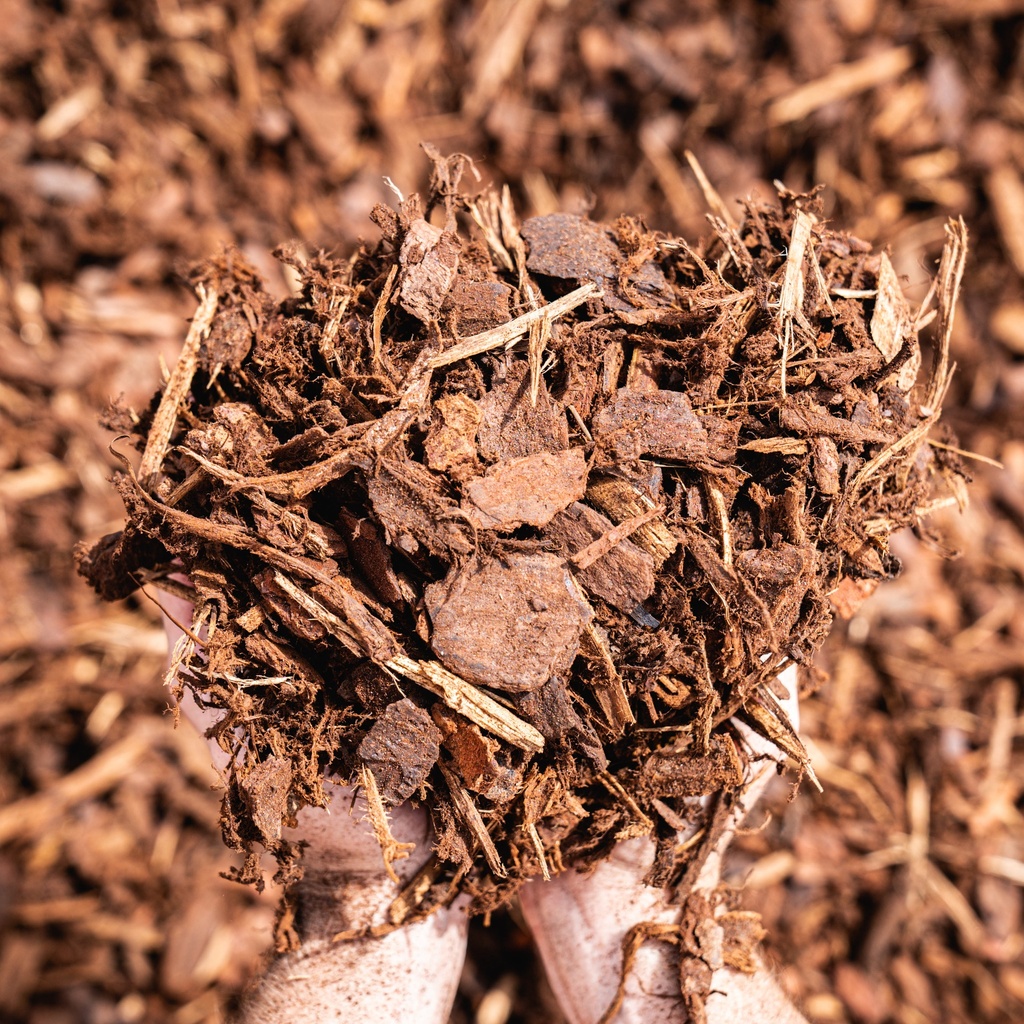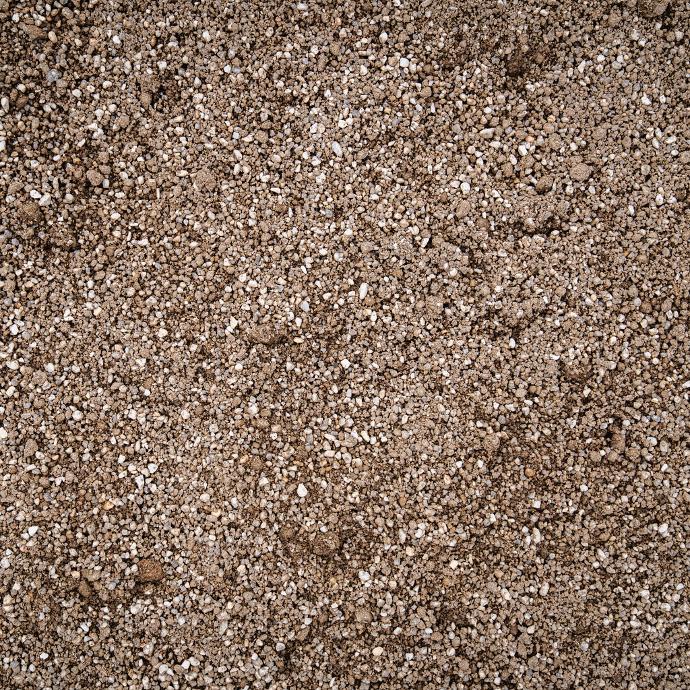What is the best Mulch?
Mulch is a layer of material applied to the surface of soil in gardens and landscapes, often made from organic substances like compost or bark. It provides numerous benefits, such as retaining soil moisture, suppressing weeds, and enhancing soil fertility as it breaks down over time. Additionally, mulch helps in regulating soil temperature, protecting plant roots and mulch such as pine bark can provide stability for soil in steep landscapes due to its superior matting property.
- Choosing the right mulch depends on your specific gardening or landscaping needs, and a good starting point is to compare the benefits and uses of inorganic versus organic mulches to determine which best suits your project.
At Daisy's Garden Supplies, we pride ourselves on offering an extensive selection of mulches, ensuring that our customers receive the best value without compromising on quality.
Organic versus Inorganic Mulches for Your Needs
The choice between organic and inorganic mulch depends on your specific gardening goals, maintenance preferences, and the needs of your plants and soil. Organic mulches enrich the soil and support plant health but require more frequent replenishment. In contrast, inorganic mulches are low-maintenance and durable but do not contribute to soil fertility. Understanding the unique benefits and drawbacks of each can guide you in selecting the mulch that best aligns with your gardening objectives.

Organic Mulch
Organic mulches are derived from previously living materials like bark, leaves, straw, grass clippings, and compost. They are favoured for their ability to improve soil structure, add nutrients, and encourage beneficial soil organisms.
Advantages of Organic Mulch
- Nutrient Boost: As they decompose, organic mulches add essential nutrients to the soil, enhancing its fertility.
- Soil Texture Improvement: It enhances soil structure, breaking up clay and increasing water retention in sandy soils, fostering better root growth.
- Earthworm Attraction: Some types of organic mulch draw beneficial earthworms and microorganisms, naturally aerating the soil and improving its fertility.
- Erosion Control: Ideal for slopes, organic mulch such as pine bark prevents soil erosion and promotes effective water infiltration.
- Temperature Regulation: Organic mulch moderates soil temperatures, keeping it warm in winter and cool in summer, ensuring plant roots thrive in stable conditions.
Disadvantages of Organic Mulch
- Decomposition: They need to be replenished regularly as they break down over time.
- Pest Attraction: Some organic mulches can attract pests or harbor diseases.
- Nitrogen Depletion: Initially, as they decompose, they can temporarily deplete the soil of nitrogen.

Inorganic Mulch
Inorganic mulches such as our Grit Mulch include non-living materials like stones, gravel, rubber, or landscape fabrics. They are chosen for their durability and specific applications where decomposition is not desired.
Advantages of Inorganic Mulch
- Durability: Inorganic mulches do not decompose, reducing the need for frequent replacement.
- Erosion Control: Materials like landscape fabrics and rocks can effectively reduce wind and soil erosion, helping to maintain landscape integrity.
- Soil Temperature Management: Certain inorganic mulches, like stones, can help warm the soil, which is beneficial for plants that thrive in warmer conditions.
- Drainage Support: Gravel and some other types of inorganic mulch are excellent for plants requiring good drainage, preventing waterlogged soil and supporting plant health
Disadvantages of Inorganic Mulch
- Soil Improvement: They do not improve soil structure or add nutrients.
- Heat Reflection: Some inorganic mulches, particularly stones, can reflect heat, potentially increasing soil temperature.
- Removal
Difficulty: Over time, some inorganic mulch such as heavy stones can
sink into the soil, making them difficult to remove or alter.
In conclusion, the choice between organic and inorganic mulch depends on your specific gardening goals, maintenance preferences, and the needs of your plants and soil. Understanding the unique benefits and drawbacks of each can guide you in selecting the mulch that best aligns with your gardening objectives. We recommend to explore the variety of mulch at Daisy's Garden Supplies, where our commitment to high-quality products meets exceptional value, making us the go-to source for all your mulching needs.